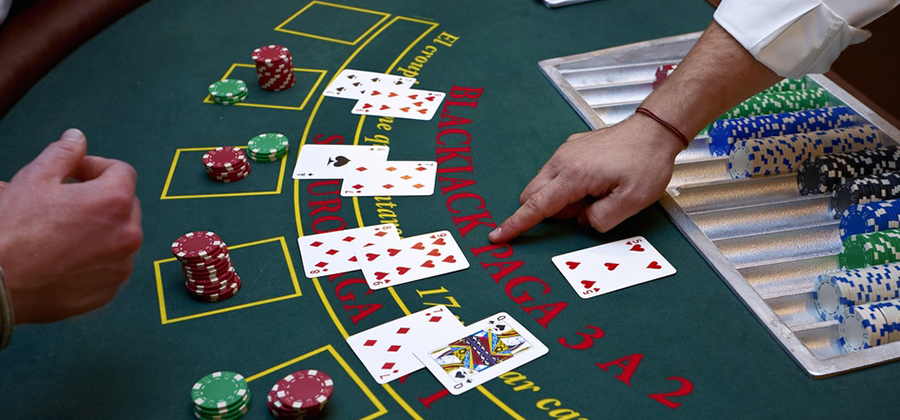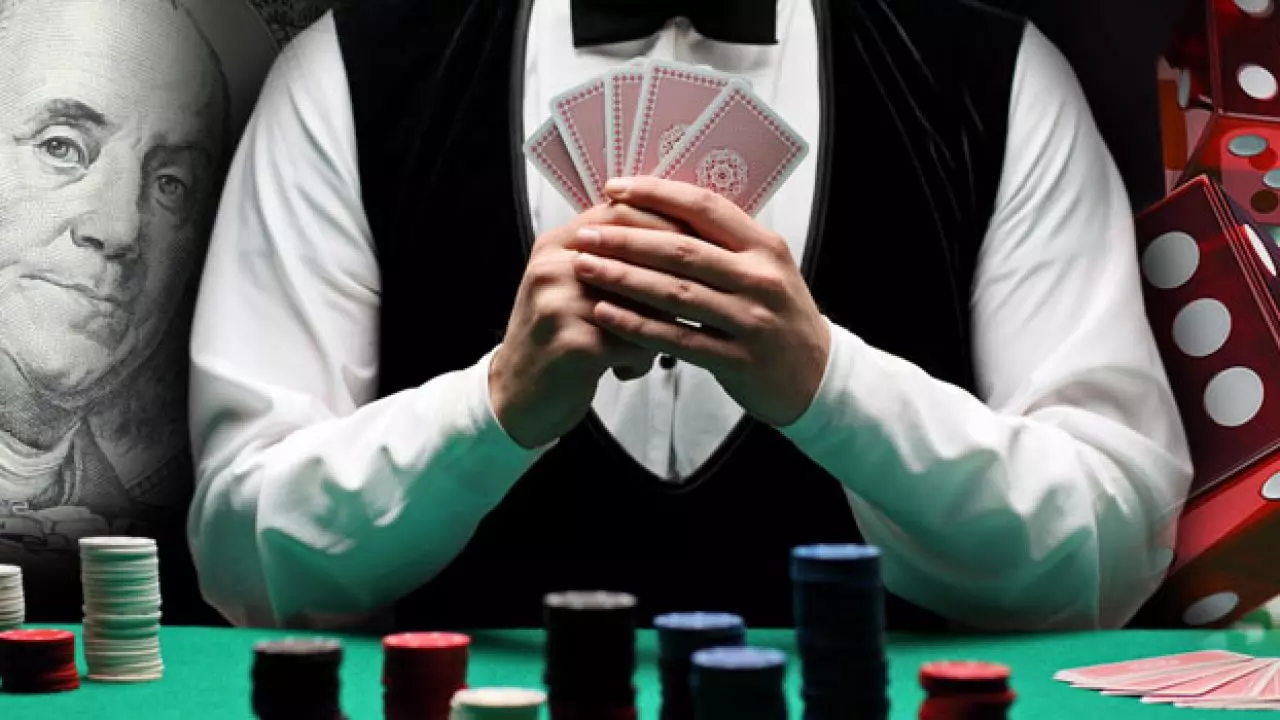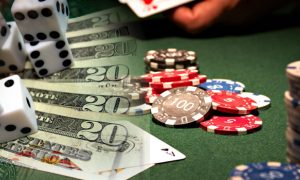Many of us are attracted to the thrill of gambling. But, just like how we are careful when crossing a busy road, we must also be careful when placing our bets. Today, we’ll talk about how to enjoy gambling while also keeping our money safe.
Every game in a casino is about chances. For example, in roulette, there’s a chance the ball will land on red or black. But remember, thinking “I’ve lost 5 times, so I’ll win now” is wrong. Every game is fresh and doesn’t depend on the past.
With the rise of online gambling platforms, the convenience of placing a wager has reached new heights. No longer do enthusiasts need to visit betting shops; now, with just a few clicks or taps, anyone can bet at home. This modern approach provides the comfort of familiar surroundings, ensuring that players can enjoy their favorite games or sports betting in a relaxed environment, making the entire experience more personal and enjoyable.
The Role of Probability in Gambling

Source: fordhamram.com
When we talk about gambling, we’re essentially talking about the play of chance. Every game in a casino, be it roulette, blackjack, or slot machines, works on the principle of probability. Take roulette, for example. The spinning wheel and the bouncing ball can land on any number, red or black. The chances are almost even, but not entirely because there’s a green zero too. Then, in blackjack, while we use strategies, there’s still uncertainty about which card will come next. Slot machines are a bit different. They work on random number generators, which means every spin is random, and the past spins don’t decide the future ones.
But here’s where many of us make a mistake. We start believing that if we’ve lost many times, then a win is just around the corner. This is what we call the ‘illusion of control’. We start thinking that we have some special technique or luck to beat the odds. But in reality, every game is independent of the previous ones. Thinking “I’ve lost five times in a row, so now I must win!” is a common misconception. We must remember that in gambling, there’s no sure-shot way to predict the next outcome, and every move is a fresh play of chance.
Strategies for Risk Management
Playing smart is just as important as playing hard. To ensure that we play wisely and don’t get carried away, setting some ground rules is crucial. First and foremost, Decide a budget. Just like we decide how much to spend when going shopping, decide beforehand how much money you’re okay with losing. This way, even if luck isn’t on our side, our pockets don’t suffer too much.
Next, time management is key. Spending too much time at the table or on a slot machine isn’t just tiring but can also lead to bigger losses. Set a time limit for yourself. Think of it like watching a movie – it has a start and end time. Likewise, start gambling with an idea of when you’ll stop.
Knowledge is indeed power. Before jumping into a game, take time to understand its rules and strategies. Would we play cricket without knowing its rules? Similarly, knowing the rules of gambling games makes us play better and smarter.
One big mistake many gamblers make is thinking that if they have lost many times, a win is due soon. This thought is called the ‘Gambler’s Fallacy’. Remember, every game is its own game. What happened in the past doesn’t change what will happen next.
While the environment in casinos can be lively with drinks flowing, it’s a good idea to stay sober. Alcohol or drugs can cloud our judgment and might make us take risks we wouldn’t otherwise.
Lastly, always remember, gambling is like watching a movie or going to a theme park. It’s for fun. Never see it as a way to make money or solve financial problems. Enjoy the thrill, but remember it’s just a game.
Hedging Your Bets: An In-depth Look

Source: nhlrumors.com
‘Hedging’ is a strategy that many players use, but what does it really mean? Think of it like this: when we carry both an umbrella and sunglasses, we’re preparing for both rain and sunshine. Similarly, in gambling, hedging means placing bets in such a way that we can reduce big losses. Instead of putting all our money on just one outcome, we spread it across a few possibilities.
Let’s take roulette as an example. The wheel has red, black, and a green zero. A common hedging strategy might be to bet on both red and black. This way, unless the ball lands on green, we won’t lose all our money. Some players might even bet different amounts on red and black to adjust potential winnings and losses. For instance, by betting more on black and a smaller amount on red, if black wins, you’ll gain more, but if red wins, you’ll lose less.
Now, is hedging always a good idea? Well, it has its benefits and drawbacks. On the bright side, hedging reduces the chance of big losses. It’s a safety net. But, on the flip side, because we’re spreading our bets, our potential winnings are also lesser. In our roulette example, if we bet on both red and black, even if we win, it won’t be as much as if we had put all our money on just one color and it won.
So, the next time you’re at a gambling table, remember the concept of hedging. It’s a strategy that plays it safe but also means smaller wins. It’s all about finding a balance that works best for you.
The Role of Emotions in Gambling Decisions
Sometimes, when we’re very happy or sad, we might not think clearly. We might make quick decisions without thinking about them. For example, after losing money, someone might rush to a betting shop to try and win it back quickly. But this can lead to even bigger losses.
So, how can we make sure our feelings don’t make us make bad decisions? One way is to take a break. If you feel too excited or upset, it’s good to step back, take a deep breath, and think. It’s like pausing a movie to understand what’s happening. This way, we can make choices using our mind, not just our feelings.
When to Seek Help: Recognizing Problem Gambling

Source: tribuna.com
Now, let’s talk about a serious topic. Sometimes, people might play so much that it becomes a problem. They might think about gambling all the time, or it might make them sad or upset. If someone starts borrowing money to gamble, or if they lie about how much they’re playing, these can be signs of a problem. It’s like when someone has a fever; it’s a sign that they’re not well.
If you or someone you know is showing these signs, it’s important to get help quickly. Just like we go to a doctor if we’re sick, there are places and people who can help with gambling problems. They understand and can give good advice. Remember, it’s always okay to ask for help.
Conclusion
Gambling, for many, is a form of entertainment, a way to have a little fun and maybe enjoy a win or two. But like any activity, it requires understanding and moderation. From understanding the role of chance, making wise decisions, to recognizing when it’s becoming more than just a game, it’s essential to approach gambling with a clear mind and set boundaries. By respecting these boundaries, one can ensure that the joy and thrill of placing a bet remains just that—a joyful activity. And always remember, if things feel out of control, seeking help is a sign of strength, not weakness.


















